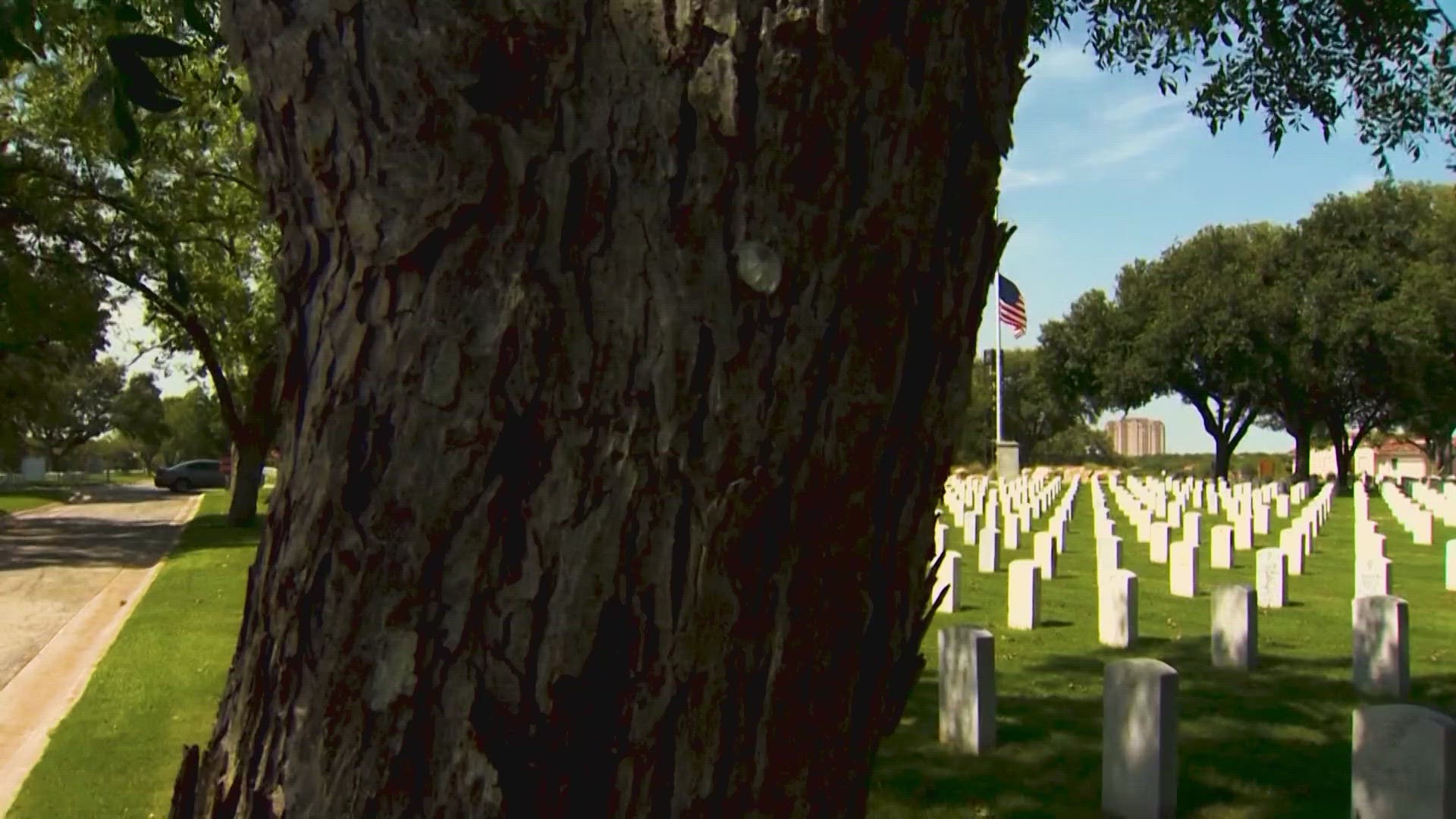SAN ANTONIO — Angelita 'Angie' Vega has plenty of stories to share about her brother Felipe R. Vega. The one that brings tears to her eyes is his death. And it's the narrative she never wanted to tell.
"I don't know how to live my life without him," she said.
Felipe R. Vega and Angie are two of eight siblings. Cementing their bond happened because he lived with her for 23 years. Tragedy and a relationship filled with fiery wit brought them even closer.
The 64-year-old San Antonio woman said they were like Joseph 'Joe' Baker and Mabel 'Madea' Simmons from Tyler Perry's productions.
"He was a crazy guy with the heart like this big," Angie said, stretching her arms to show width.
'Cooter,' as he got called, enlisted in the United States Marines with his brother. Angie said she recalls that day because her father cried. Angelo and Matilda Vega were their parents, but she said their father raised them.
Out of Vietnam came letters from Cooter, she said. The correspondence ensured her that he was fine. The family could not believe Cooter Vega made the cover of Newsweek's April 28, 1975 cover--"The Last Battle."
"He said, you know, in Vietnam, when I had to go get the people, all I could do was cry," she said. "That's all I could do."
Angie said when her brother came home from Vietnam, he was different. It's a familiar set of circumstances where veterans lacked the modern-day counseling for Post Traumatic Stress Disorder.
While her brother spoke of the helicopter transport he was on, the details of what he saw would jar him from sleep at night, make him cry behind closed doors, and hold tight to the images.
"He just said it was something horrible that I don't even want you to know," she said.
After completing the mission of transporting the Vietnamese out of the war zone, Cooter came home. Angie said his marriage would fail after about ten years.
His children, Phillip A. Vega and Jessica M. Vega, would precede him in death. Self-medicating the hurt was normal and hurtful to his health.
Angie said he was diagnosed with alcoholic dementia. Before that, he stepped in following the murder of Angie's husband in Mexico to help her and her children.
"I have my children, but my brother was my life," she said.
In 2010, Cooter's health started to fail him. By May 29, Angie didn't realize he was in his final days. She left the hospital in San Antonio to get rest at their Pleasanton home. Then, the call came for her to hurry back.
By the time she got back, Cooter had expired. Her daughter broke the bad news.
"Those were the hardest words that I had to hear was Mom is gone," she said.
Angie didn't get the chance to say goodbye, or I love you. She transitioned to the seat of dread and honor at his graveside service at Fort Sam Houston National Cemetery.
"I'm trying to go on without him, but it's so hard," she said.
Taps played. The rifles fired in the distance as loved ones and friends watched the military processional. Two Marines meticulously folded the American flag draped across her brother's coffin.
"I never, ever in my life. In my mind--- would never have thought I'd be handed a flag, especially of his," she said.
Angie said finality sat in when the Marines presented her with Cooter's flag— and the shell casings from the rifle representing duty, honor, and country.
Now, Angie is dealing with the gap between glory and grief. She knows this is the one time her brother won't come home.
"I'll sit here, and I think, and I look through my phone and look at his pictures, and that's all I got," she said.

